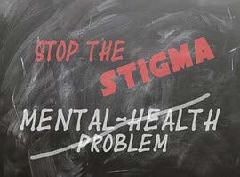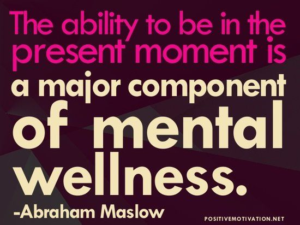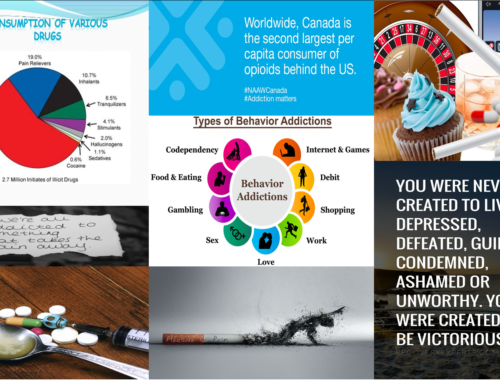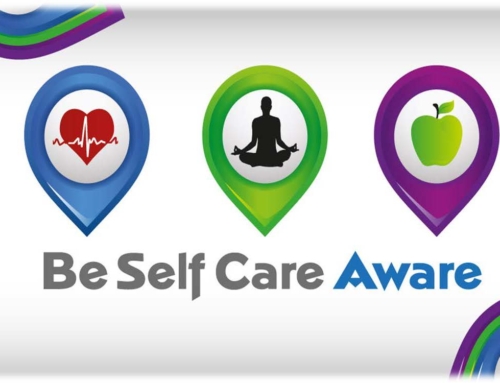Mental health and mental illness is not the same thing yet often used interchangeably.
We are all affected by numerous factors from daily life, including the stress of balancing work with personal life including health and relationships. Mental health includes our emotional, psychological, and social well-being. It affects how we think, feel, and act. It also helps determine how we handle stress, relate to others, and make choices
Most of us go through life solving our day-to-day problems challenges without requiring help to cope with our feelings. However, over the course person’s life, they may experience mental health problems affecting thinking, mood, and behavior, resulting in an inability to cope with life’s ordinary demands and routine.
There is a belief that these individuals can be difficult, not intelligent, or incapable of making decisions and are untreatable. Within the health system, people are too often treated in institutions which resemble human warehouses rather than places of healing.
On a brighter note, Prime Minister Justin Trudeau’s mother, Margaret, is a prominent advocate for mental health issues and has spoken openly about her experience living with depression and bipolar disorder.
Facts
- Mental illness affects most Canadians at some time either personally or through family member, friend or colleague.
- 20% of Canadians will personally experience a mental illness in their lifetime.
- War and disasters have a large impact on mental health and psychosocial well-being
- Mental disorders are important risk factors for other diseases, as well as unintentional and intentional injury
- Stigma and discrimination against patients and families prevent people from seeking mental health care
- Human rights violations of people with mental and psychosocial disability are routinely reported in most countries
- It is estimated that 10-20% of Canadian youth are affected by a mental disorder – single most disabling of disorder affecting youth.
- Mental health issues are still feared and misunderstood by many people
- Attitudes around mental illness, can lead to stigma and discrimination, making it harder for these individuals to reach out for help.
- Stigma or discrimination attached to mental illness presents a serious barrier, not only to diagnosis and treatment but also to acceptance in the community.
- Mental illnesses can take many forms, just like physical illness.
- Mental illnesses can be treated effectively
- Causes of mental health issues are due to genetic, biological, personality and environmental factors.
- Misunderstanding and stigma can lead to abuse and exclusion from health care
- Almost half of the individuals who have suffered from depression or anxiety never go see a doctor
What is the economic cost?
- The economic cost of mental illness in Canada for the health care system was estimated to be at least $7.9 billion in 1998 of which $4.7 billion for care and $3.2 billion for disability and early death.
- An additional $6.3 billion was spent on uninsured mental health services and time off work for depression and distress that was not treated by the health care system.
- There are more than 200 classified forms of Mental Illnesses
It is especially important to notice any changes in thoughts and behaviors from the ‘norm’. Also keep in mind that the onset of several of the symptoms below, and not just any one change, indicates a problem that should be assessed
- Confused or strange thoughts
- Prolonged depression (sadness or irritability)
- Feelings of extreme highs and lows
- Excessive fears, worries, anxieties and anger
- Social withdrawal
- Dramatic changes in eating or sleeping habits
- Seeing or hearing things that aren’t there (hallucinations)
- Growing inability to cope with daily problems and activities
- Suicidal thoughts
- Numerous unexplained physical ailments
- Substance abuse
- Prolonged negative mood, often accompanied by poor appetite or thoughts of death
- Defiance of authority, truancy, theft, and/or vandalism
- In Younger Children
- Changes in school performance In Younger Children
- Excessive worry or anxiety (i.e. refusing to go to bed or school), In Younger Children
- Hyperactivity In Younger Children
- Persistent nightmares In Younger Children
- Persistent disobedience or aggression In Younger Children
- Frequent temper tantrums In Younger Children
How to cope day-to-day
- Accept your feelings
- Get help if necessary to handle unusual behavior, mood or thoughts
- Seeking counseling and Medical treatment
- Establishing a support network
- Taking time out, do self care and participate in self help
- Eat well, exercise and engage socially
Employment
- Stigmatization in the workplace is the greatest barrier to employment. These persons face multiple employment obstacles, such as: gaps in work history, limited employment experience, lack of confidence, fear, anxiety, workplace discrimination and inflexibility, social stigma and the rigidity of existing income support/benefit programs.
- The unemployment rate of persons with mental health issues reflects these obstacles and has been commonly reported to range from 70-90%, depending on the severity of ones symptoms.. These statistics are particularly disturbing in light of the fact that productive work has been identified as a leading component in promoting positive mental health and in paving the way for a rich and fulfilling life in the community.
- Access to meaningful, paid work is a basic human right for every citizen, and those who experience mental health issues should have equal access to the fundamental elements of citizenship which include: housing, education, income and work. These individuals have the right to be employed in a mainstream job, rather than being labeled and restricted to a mental health program or sheltered workshop.
- Under WorkBC Employment mandates, several constructive and positive Employment supports are available. Please see your local centre at: WorkBC.ca.
Resources: To help you stay well informed, mentally fit and healthy.
World Health Organisation: 10 facts on mental health: http://bit.ly/1T84Mn8
Canadian Institute for Health Information: Improving the Health of Canadians: Exploring Positive Mental Health: http://bit.ly/1rCULZu
What is Mental Health and Mental Illness? http://bit.ly/2479InJ
Supporting a Loved One: http://bit.ly/1VE7yXO
Getting help: http://bit.ly/1NDLQjU
Mental Health Works: http://bit.ly/1T84ahi
Mental Health in the Workplace: http://bit.ly/1XXh9Xr
Youtube: http://bit.ly/1NDLoCg
Globe and Mail Newspaper: http://bit.ly/1VWNM9Z
Government of Canada – Health Information: http://bit.ly/1VE7mrx
Mental Health Strategy for Canada: http://bit.ly/1YVWAuP
Prime Minister Shares on family experience: http://bit.ly/1NXIlje
Prime Minister Shares on family experience: http://bit.ly/1TgOg4E
Canadian Mental Health Supported Housing-New Westminster: http://bit.ly/24nahX7
Anxiety disorder: http://bit.ly/23aAplR
Depression: http://bit.ly/1NXHWNN
Eating Disorders: http://bit.ly/1VVlSeZ
Depression and Bi-polar Disorder: http://bit.ly/1TyZq7
Grieving: http://bit.ly/1VE7cAs
Workplace and Depression: http://bit.ly/1TyZlAJ
Obsessive Compulsive Disorder; http://bit.ly/23azUbj
Phobias and Panic Disorder; http://bit.ly/1TyZeoU
Post-Traumatic Stress Disorder; http://bit.ly/1YVWwv5
Post-Partum Depression: http://bit.ly/1NDJPV5
Facts about Schizophrenia; http://bit.ly/26y7Gf
Youth and Self-injury; http://bit.ly/1WVhgEH
Suicide: http://bit.ly/1SNuXmd
Myths about Mental Disorder: http://bit.ly/1VWN8JE
Mental Health Strategy for Canada: http://bit.ly/1rlAgQx
Reference material adopted, with thanks, from:
Government of Canada website: Mental Health and Wellness
Mental Health Commission: Mental Health Strategy for Canada
Canadian Mental Health Association: Mental Health
Canadian Mental Health Commission; Facts about Mental Health
Canadian Population Health Initiative
World Health Organisation
Globe and Mail




















